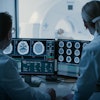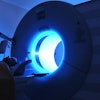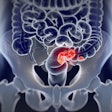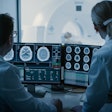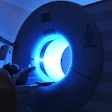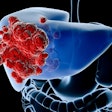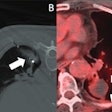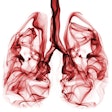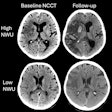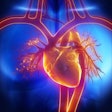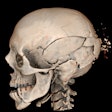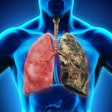Dear CT Insider,
Determining the best imaging modality for the diagnosis of coronary artery disease has been a somewhat contentious matter for years. Clinical research overwhelmingly supports coronary CT angiography (CCTA) as the preferred test, but traditional SPECT myocardial perfusion imaging (MPI) continues to be the most widely used in practice.
A new prospective study found yet another reason to stand behind CCTA as a first-line technique for suspected cases of coronary artery disease. Read about the advantages the researchers claim CCTA has over MPI in this edition's Insider Exclusive.
Potentially even better than CCTA for evaluating emergency chest pain, stress echocardiography is all too often disregarded as an option for diagnosing cardiovascular disease. However, a team of investigators from New York affirmed that stress echocardiography may have CCTA beat on several hospital-related measures.
Unlike in the case of coronary artery disease, CT is the most commonly used modality for identifying lung cancer. Yet screening for lung cancer with CT is beset by its own kind of controversy. In a recent study, Dr. Peter Bach and colleagues from Memorial Sloan Kettering Cancer Center questioned the mortality reduction associated with CT lung cancer screening for high-risk smokers -- proposing that the metrics used to determine this reduction may have been "inappropriate."
In addition, CT lung cancer screening is still plagued by low participation from eligible individuals. A presentation at the 2018 American Society of Clinical Oncology (ASCO) meeting in Chicago revealed that screening rates for eligible smokers in the U.S. may be lower than previously suspected.
Nevertheless, the vast majority of clinicians do still seem to be in favor of the test, with numerous groups seeking out new ways to improve screening:
- A study at a hospital in the U.S. Veterans Affairs health network demonstrated how certain forms of patient outreach might boost screening uptake.
- A separate study out of Thomas Jefferson Hospital suggested that improving patient education tools concerning lung cancer screening might be beneficial.
- Researchers from the U.S. National Cancer Institute and the American Cancer Society detailed their selection of the top lung cancer risk-prediction models used to fine-tune CT screening eligibility.
- A group from Michigan pointed to three rules of thumb when personalizing CT lung cancer screening after performing simulations of data from the National Lung Screening Trial.
CT colonography (CTC) has also surfaced lately as a viable screening test for colorectal cancer. One meta-analysis performed at the University of Wisconsin supported CTC as a safer and more efficient screening alternative to colonoscopy. Two other studies, one conducted in Denmark and the other in the U.S., reported that increasing the number of follow-up CT exams to assess patient recovery after colorectal cancer surgery had little effect on patient outcome.
Beyond screening, clinicians have also applied artificial intelligence algorithms to CT for detecting brain hemorrhages and white-matter lesions; other researchers examined CT scans with virtual reality to find brain aneurysms and with 3D imaging to diagnose arthritis.
These stories represent just a sampling of the research and news covered in our CT Community. Head over to AuntMinnie.com for more of the latest in the field.

